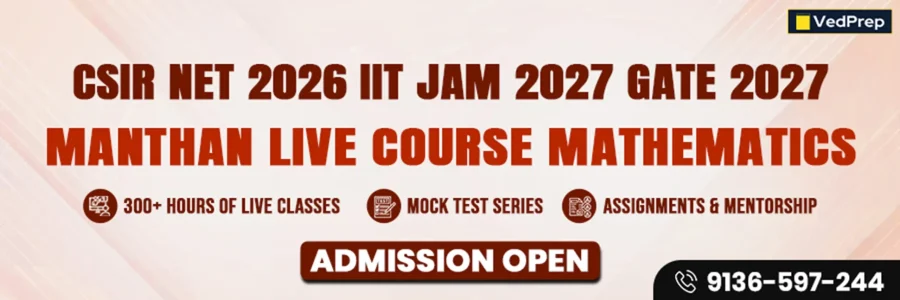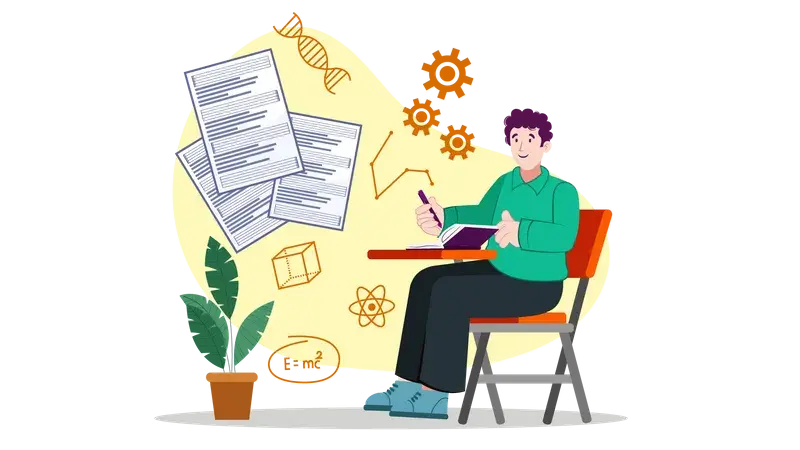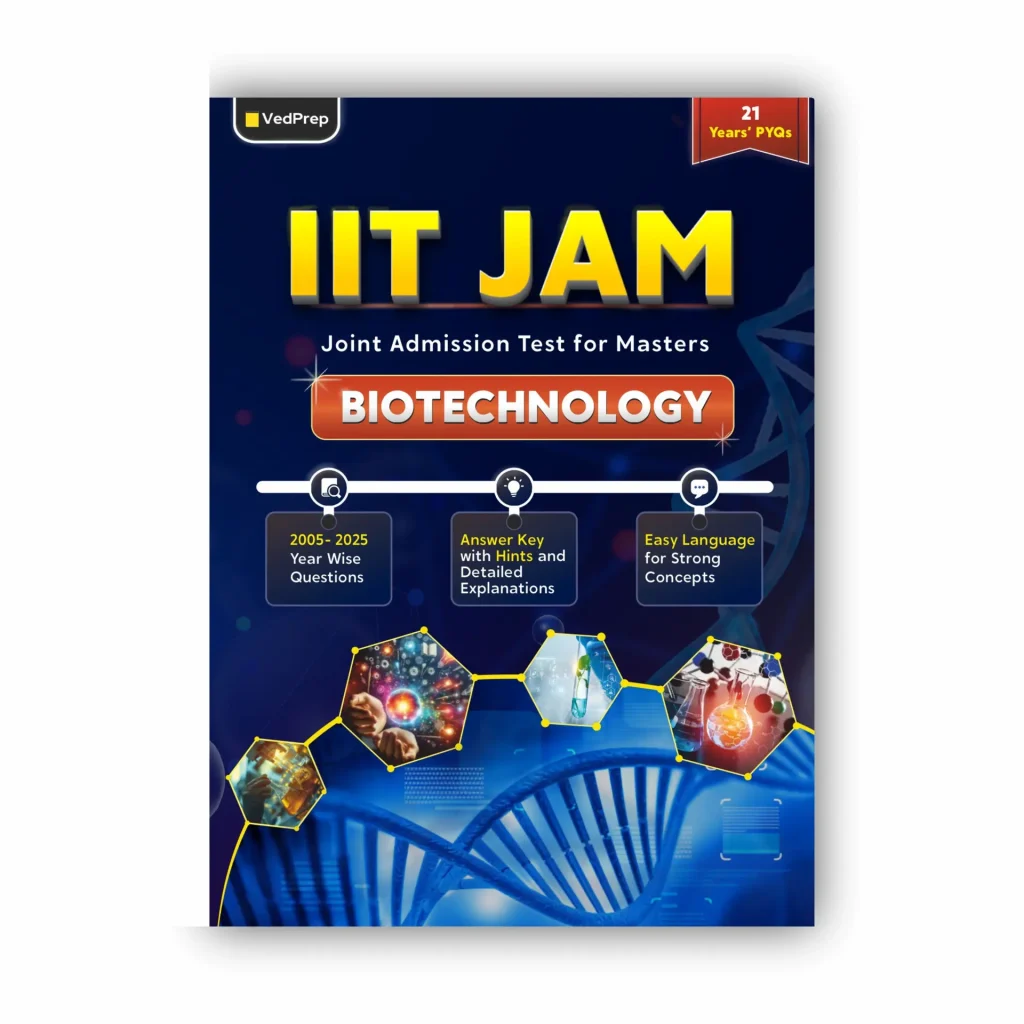IIT Guwahati will conduct GATE EE Exam 2026 for admission in M.E./M.Tech./PhD programmes in IITs and IISc institutes. GATE Exam 2026 offers an opportunity for Admissions as well as for PSUs recruitments. Candidates who qualify GATE Exam will have their scorecard valid for next three years to take admission in any institute. GATE EE Syllabus 2026 was relesaed on August 5, 2025 aqlong with GATE Notification 2026.
Also read GATE Exam
GATE EE Syllabus 2026
GATE EE Exam 2026 offers admission for M.E./M.Tech/PhD programmes in IITs, NITs, IISc and other institutes. Candidates who have a valid GATE Scorecard for years 2026, 2025, and 2024 are eligible for admission. GATE EE Scorecard can be used in PSUs recruitment for job prospects in related sectors
Candidates who wish to take admission can apply for GATE EE Exam 2026 and can start their preparation earlier. Before starting preparation, candidates must have to be familiar with GATE EE Syllabus 2026. This will enhance your chances of succeeding in GATE EE Exam. Candidates can follow this page for a detailed analysis GATE EE Syllabus 2026 with subject wise weightage.
GATE EE Exam Pattern 2026
Candidates who plan to appear in GATE EE Exam 2026 must be familiar with GATE EE Exam Pattern 2026. This will help candidates to know about GATE Exam and Question Paper, and more. The detailed GATE EE Exam Pattern 2026 is given below
| GATE EE Exam Pattern 2026 |
| Particulars |
Details |
| Mode of Exam |
Online |
| Number of Questions |
65 |
| Duration of Exam |
3 hours |
| Pattern of Questions |
- Multiple Choice Questions (MCQs)
- Multiple Selective Questions (MSQs)
- Numerical Answer Type Questions (NAT)
|
| Marking Scheme |
- For MCQs, the Test Paper carries 1 mark and 2 marks for questions with 13 and 23 negative marking for incorrect answers, respectively.
- For NAT – No negative marking.
|
| Number of Sections |
- Section 1- General Aptitude
- Section 2 – Engineering Mathematics and Core Discipline Questions.
|
| Topic wise weightage |
- General Aptitude – 15%
- Engineering Mathematics – 15%
- Core Discipline Questions – 70%
|
Also read GATE Exam Pattern
GATE EE Syllabus 2026 For General Aptitude
GATE EE syllabus 2026 holds 15% marks for general aptitude out of total Marks. In GATE EE Syllabus 2026, general aptitude examines candidates’ quantitative, verbal, problem-solving and decision-making skills. GATE EE Syllabus 2026 for general aptitude contains important topics like Verbal, Quantitative, analytical, and spatial aptitudes. The detailed GATE EE Syllabus 2026 for General Aptitude is given in table below
| GATE EE Syllabus 2026 For General Aptitude |
| Topics |
Syllabus |
| Verbal Aptitude |
- English grammar
- Vocabularies
- Reading and comprehension
- Narrative sequencing
|
| Quantitative Aptitude |
- Data interpretation
- 2 & 3-dimensional plots
- Maps & tables
- that includes ratios, percentages, powers, exponents & logarithms, Numerical computation & estimation
- Permutations & combinations
- Mensuration & geometry
- Elementary statistics & probability
|
| Analytical Aptitude |
- Logic: Deduction & induction Analogy
- Numerical relations & reasoning
|
| Spatial Aptitude |
- Translation, mirroring, rotation & scaling Transformation of shapes
- Assembling & grouping
- Paper folding, cutting, and patterns (2 & 3 dimensions)
|
GATE EE Syllabus 2026 For Engineering Mathematics
GATE EE Syllabus 2026 section A contains questions based on Engineering Mathematics, which play an important role in Question solving and practising. The detailed GATE EE syllabus 2026 for Engineering Mathematics is given below
| GATE EE Syllabus 2026 For Engineering Mathematics |
| Sub-topics |
Syllabus |
| Linear Algebra |
- Linear dependence and independence
- Vector space
- Matrix algebra, eigenvalues and eigenvectors
- Solution of linear equations- existence and uniqueness
- Rank.
|
| ṄṄCalculus |
- Mean value theorems
- Theorems of integral calculus
- Evaluation of definite and improper integrals
- Partial derivatives, maxima and minima
- Multiple integrals, line, surface and volume integrals
- Taylor series
|
| Differential Equations |
- First-order equations (linear and nonlinear)
- Higher-order linear differential equations
- Cauchy’s and Euler’s equations
- Methods of solution using the variation of parameters
- Complementary function and particular integral
- Partial differential equations
- Variable separable method
- initial and boundary value problems
|
| Vector Analysis |
- Vectors in the plane and space
- Vector operations
- Gradient, divergence and curl
- Gauss’s, Green’s and Stokes’ theorems.
|
| Complex Analysis |
- Analytic functions
- Cauchy’s integral theorem
- Cauchy’s integral formula, sequences, series, and convergence tests
- Taylor and Laurent series, residue theorem.
|
| Probability and Statistics |
- Mean, median, mode, standard deviation
- Combinatorial probability
- Probability distributions
- Binomial distribution
- Poisson distribution
- Exponential distribution
- Normal distribution
- Joint and conditional probability.
|
GATE EE Syllabus 2026 For Core Subjects
GATE EE Syllabus 2026 core subject holds major marks, and topics are at undergraduate level. The detailed GATE EE Syllabus 2026 for core subject, topic-wise, with subtopics, is given in table below
| GATE EE Syllabus 2026 For Core Subjects |
| Subjects |
Syllabus |
| Electric circuits |
- Ideal voltage
- Current sources
- Dependent sources
- R, L & C elements
- KCL & KVL
- Node & Mesh analysis
- Thevenin’s Theorems
- Norton’s Theorems
- Superposition Theorems
- Maximum Power Transfer Theorem
- Transient response of DC & AC networks
- Sinusoidal steady-state analysis
- Resonance
- Two-port networks
- Balanced three-phase circuits
- Star-delta transformation
- Complex power & power factor in AC circuits
|
| Electromagnetic Fields |
- Coulomb’s Law,
- Electric Field Intensity
- Electric Flux Density
- Gauss’s Law
- Divergence
- Due to point, line, plane, and spherical charge distributions for the Electric field & potential
- Effect of a dielectric medium
- The capacitance of simple configurations,
- Biot-Savart’s law
- Ampere’s law
- Curl
- Faraday’s law
- Lorentz force
- Inductance
- Magnetomotive force
- Reluctance
- Magnetic circuits
- Self & Mutual inductance of simple configurations.
|
| Signals and Systems |
- Representation of continuous & discrete-time signals
- Shifting & scaling properties
- Linear time-invariant & causal systems
- Fourier series representation of discrete-time periodic signals
- Sampling theorem
- Continuous-Time Signals: Applications of the Fourier Transform
- Fourier Transform for Discrete-Time Signals application
- Laplace Transform
- Z transform
|
| Electrical Machines |
- Single-phase transformer
- Equivalent circuit
- Phasor diagram
- Open circuit tests
- Short circuit tests
- Regulation and efficiency
- Three-phase transformers
- Connections
- Vector groups
- Parallel operation
- Auto-transformer
- Electromechanical energy conversion principles
- DC machines
- Separately excited
- Series & shunt
- Generating mode of operation & their characteristics & motoring
- Speed control of DC motors
- Three-phase induction machines
- Principle of operation
- Types
- Performance
- Torque-speed characteristics
- No-load & blocked-rotor tests
- Equivalent circuit
- Starting & speed control
- Operating principle of single-phase induction motors
- Synchronous machines
- Cylindrical & salient pole machines
- Performance & characteristics
- Regulation & parallel operation of generators
- Starting of synchronous motors
- electric machine’s types of losses & efficiency calculations
|
| Power Systems |
- Basic concepts of electrical power generation
- AC and DC transmission concepts
- transmission lines & cables Models and performance
- Load Dispatch Economy (with & without considering transmission losses)
- Series & shunt compensation
- Electric field distribution
- Insulators
- Distribution systems
- Per-unit quantities
- Bus admittance matrix
- Gauss-Seidel & Newton-Raphson load flow methods
- Voltage & Frequency control
- Power factor correction
- Symmetrical components
- Symmetrical & unsymmetrical fault analysis
- Over-current principle, differential, directional & distance protection
- Circuit breakers
- System stability concepts
- Equal area criterion.
|
| Control Systems |
- Mathematical modelling & representation of systems
- Feedback principle
- Transfer function
- Block diagrams
- Signal flow graphs
- Transient of linear time-invariant systems
- Steady-state analysis of linear time-invariant systems
- Stability analysis
- Using Routh-Hurwitz
- Using the Nyquist criteria
- Using Bode plots
- Using Root loci
- Lag, Lead & Lead-Lag compensators
- P, PI & PID controllers
- State space model
- Solution of state equations of LTI systems.
|
| Electrical and Electronic Measurements |
- Bridges & Potentiometers
- Measurement of voltage & current
- Measurement of power, energy & power factor
- Instrument transformers
- Digital voltmeters & multimeters
- Phase, Time & Frequency measurement; Oscilloscopes
- Error analysis.
|
| Analog and Digital Electronics |
- Clipping, clamping & rectifiers
- Amplifiers
- Biasing
- Equivalent circuit
- Frequency response
- Oscillators
- Feedback amplifiers
- Operational amplifiers: characteristics & applications
- Single-stage active filters
- Active Filters
- Sallen Key
- Butterworth
- VCOs
- Timers
- Digital Circuit
- Combinatorial logic circuit
- Sequential logic circuits
- Multiplexers
- Demultiplexers
- Schmitt triggers
- Sample and hold circuits
- Analog to Digital Converter
- Digital to Analog converter
|
| Power Electronics |
- Static V-I characteristics & firing/gating circuits
- DC to DC conversion
- Buck
- Boost
- Buck-Boost Converters
- Single & three-phase configuration of uncontrolled rectifiers
- Voltage & Current commutated Thyristor-based converters
- Bidirectional AC to DC voltage source converters
- Power factor of AC to DC converters
- Distortion Factor of AC to DC converters
- Sinusoidal pulse width modulation
|
Also read GATE Books
GATE EE Syllabus 2026 PDF Download
Candidates can download GATE EE Syllabus 2026 easily from following link. GATE EE Syllabus 2026 will help to build an understanding of important topics and improve your weak topics. This will be beneficial for a focused study plan.
Also read GATE PYQs
GATE EE Syllabus Weightage 2026
Candidates can make best strategy for GATE EE Exam 2026 based on weightage of each topic and can determine which topic is important and which is moderate in GATE EE Syllabus 2026. The brief analysis of GATE EE syllabus weightage 2026 based on marks and number of questions is given in table below
| GATE EE Syllabus Weightage 2026 |
| Subjects |
Marks Weightage |
| General Aptitude |
15 |
| Engineering Mathematics |
13 |
| Signals and Systems |
8 |
| Electromagnetic |
7 |
| Electrical Machines |
12 |
| Analog Circuits |
7 |
| Digital Circuits |
2 |
| Power Systems |
8 |
| Control Systems |
8 |
| Electric Circuits |
7 |
| Power Electronics |
11 |
| Electrical Measurements |
2 |
Also read GATE Cutoff
GATE EE Syllabus 2026 FAQs
IIT Guwahati is going to conduct the GATE EE Exam 2026.
You can follow this page to download the GATE EE Syllabus 2026 and related information here on this page
After general aptitude, three major topics that are Engineering Mathematics, Electrical Machines, and Power Electronics hold much weightage in the GATE EE Syllabus 2026.
There are a total of 65 questions in the GATE EE Question, in which 15 questions are of general aptitude and 50 are subjective.
The GATE EE Exam timing will be for three hours.











